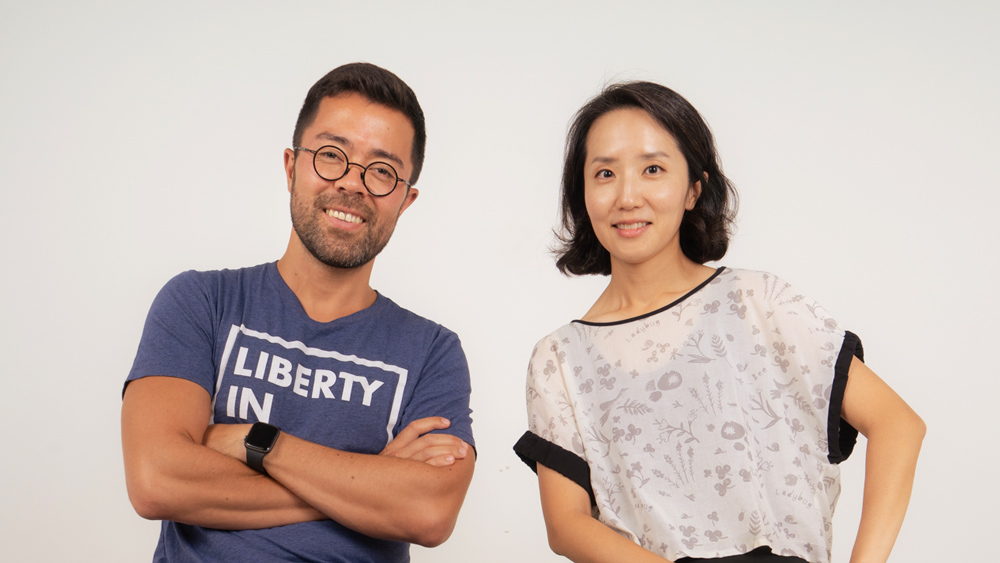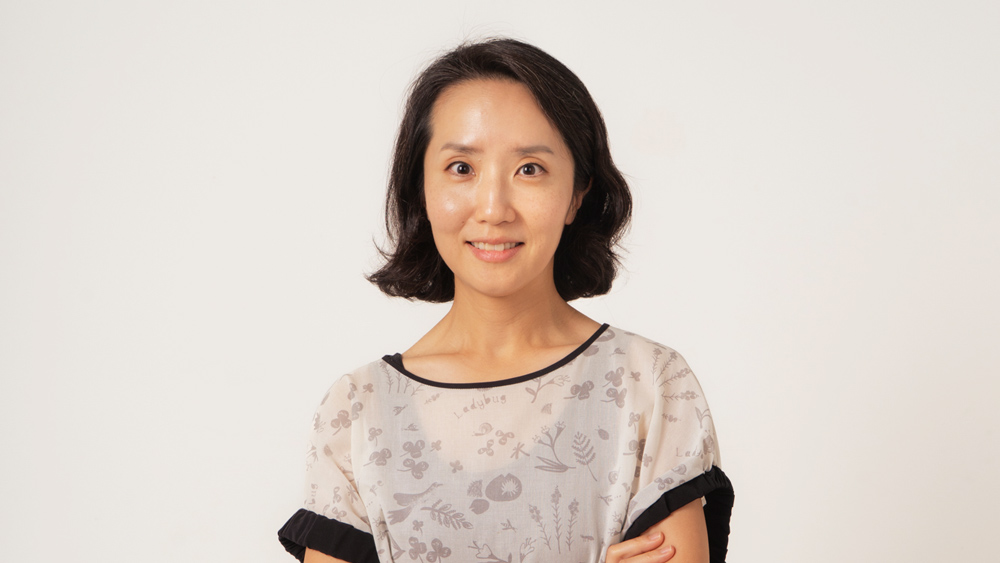The Red Box: Misunderstandings and Stereotypes about North Koreans
For North Korean refugees, resettling in a new society comes with many challenges. One of these challenges is overcoming the stereotypes about North Korea and the North Korean people.
In the latest episode of The Red Box, our North Korean friends and 2019 LiNK Advocacy Fellows talk about the struggle of of facing stereotypes after resettling in South Korea.
Watch as Jeongyol, Joy, Dasom, and Ilhyeok answer your questions in The Red Box Series!
Read the transcript of this episode below!
All: Welcome to the Red Box!
Jeongyol:
Are there any misunderstandings about the North Korean people that make you feel uncomfortable?
Ilhyeok: Misunderstandings?
Joy: When I first came to South Korea, was working part-time at a convenience store. I was still very young and had a very heavy North Korean accent.
In South Korea, when a customer enters the part-time employees don't really greet them. But I used to greet the customers standing and say "Welcome!" so people would ask me where I'm from.
I'd tell them that I'm from North Korea. They'd say "oh really?" After they get their stuff and put them on the counter, they'd asked me if I ever had jjajangmyun or pork in North Korea? They'd ask me these types of questions. Some people ask because they don't know but sometimes they ask questions that insinuate that we were all so poor in North Korea. Not everyone in North Korea is like that. There's people who live well too
Jeongyol: If someone asked me that, I’d tell them I might've lived a wealthier life there [in North Korea].
Joy: So those types of questions made me feel a little uncomfortable.
Jeongyol: A lot of people think like that.
Dasom: People think that all North Koreans are poor, ignorant, and uneducated. People have told me that even though I must have starved and lived poorly in North Korea, I don't look the part.
Maybe some people did or didn't have enough food to eat. There are poor people and there are rich people too. Every country is the same — it’s the same in South Korea too. There are rich, poor, and homeless people in South Korea too. I don't think it's right to judge someone like that. It made me feel very uncomfortable
Jeongyol: When I was in high school, there was a soccer match between North Korea and South Korea. But all of a sudden they asked me which team I'm cheering for. So I was startled by the question.
Should I say I'm cheering for North Korea or South Korea? What's my identity?
Even though I'm living in South Korea as a South Korean citizen, they didn't recognize the fact that I'm also South Korean. That we were the same people.
So at the time I answered, "I'm not cheering for either team. I don't care who wins. I’m just watching the game for fun.” It went over smoothly but afterward I kept thinking about it. But now that I think about it…It wasn't my choice to be born in North Korea.
Dasom: Right
Jeongyol: I could've been born in the U.S. but somehow I was born in North Korea.
Anyone could've been born in North Korea.
It's not anyone's fault. So from that moment on, I became confident. I am just who I am.
Ilhyeok: I have this older friend from China. During holidays like in January, he'd always ask me if I am visiting my hometown. Whenever he asks me that question, I want to be able to tell him that I'm am going [home] but I can't because I can't go back so I just don’t answer him. When he asked me if I'm going home, I just wished that I could return home one day.
It's heartbreaking not being able to go home.
During Chuseok and New Year's Day, those two holidays are when I miss home the most.
Joy: One uncomfortable question for me was when I was in school or met people was when they asked me why there's no riot or uprising in North Korea. Sometimes people ask because they really don't know but sometimes they insinuate that we're cowards.
And with that viewpoint, they ask why we won't revolt against the government. I try to explain but they still insist and say, ”But you guys still should have done something.” That makes me a little sad.
In North Korea, there's a system of monitoring each other. So if one person says something bad, they'd get reported right away and taken.
Jeongyol: In South Korea there were a lot of civil riots so they ask why we didn't do anything in North Korea.
Joy: But it's a very different situation.
Jeongyol: The system doesn't allow it.
Dasom:
What also made me uncomfortable was if I did something wrong, people would blame it because I'm North Korean.
They say things like, “It's because she's North Korean.” That made me upset. Other people say bad things and make mistakes too. But because of one mistake they say all North Koreans are like that and that I wouldn't know things or be able to do things because I'm from North Korea.
I hated hearing that so I wouldn't tell anyone that I was from North Korea.
At the Forefront of North Korean Human Rights Work | LiNK Organizational Update
Liberty in North Korea welcomes Sarah Yun as our new Chief Regional Officer (CRO), South Korea, as our previous South Korea Country Director, Sokeel Park, transitions into a new role as our Chief Strategy Officer (CSO). Sarah and Sokeel will collaboratively lead LiNK’s South Korea operations while growing LiNK’s impact through their respective areas of expertise.

Over a Decade of Dedication to Human Rights
Sarah Yun brings a wealth of experience and expertise from her work to advance human rights in North Korea and across Asia during the past 15 years. She most recently served as the Country Director of Korea and Cambodia at the National Democratic Institute (NDI), managing the Institute’s operations and programs in the two countries.
Previously, Sarah was a Senior Manager for Asia at the National Endowment for Democracy (NED), overseeing the Cambodia, Vietnam, North Korea, Thailand, and the Philippines programs and teams. Prior to her experience at the NED, she worked at the Center for International Private Enterprise where she managed the Cambodia and North Korea programs, in addition to the Papua New Guinea program and field office.
“I have had the opportunity to work on issues related to various countries in Asia at a variety of institutions throughout my career, but my greatest passion has always been to envision a North Korea where its people can choose their own future. I am deeply inspired by the stories and resilience of the North Korean people and am committed to supporting their leadership and efforts toward a better future.”
– Sarah Yun, LiNK CRO

Sarah holds a BA in Political Science and Business Institutions from Northwestern University and MA in International Relations and International Economics from Johns Hopkins University School of Advanced International Studies. Her journey with LiNK began in college, when she came across her campus LiNK Team.
“I first learned about LiNK during my college years, when chapters began to emerge across the United States. Since then, I have respected the organization’s mission and work. When I was given the opportunity to work at LiNK, I had great anticipation and excitement at the thought of joining and supporting North Koreans' journey toward a free and open future. Together with the LiNK team, I hope to contribute to amplifying the leadership and voices of young North Korean defectors in creative and impactful ways.”
– Sarah Yun, LiNK CRO
A Strategic Shift
As LiNK continues to expand and refocus our programs in response to the evolving needs of this issue, there was a timely opportunity to bring on Sarah and diversify the organization’s impact.
As CRO, Sarah Yun will lead LiNK’s South Korea team, oversee our Capacity Building Programs, and represent the organization in South Korea. Sokeel Park will jointly represent LiNK alongside Sarah and maintain key collaborative efforts with external stakeholders. As CSO, Sokeel’s scope will also encompass the development of the organization’s broader strategy and Information Access Programs (IAP). Moving forward, IAP is an area of work which we are expanding as a crucial way to support North Koreans driving change inside the country, and achieve our vision.
North Korean refugees consistently tell us that getting more outside information into North Korea is crucial for empowering North Koreans to change their country. The importance of this area of work has only increased in recent years, so it is vital that we are able to increase the resources and time we are investing into these strategies. I’m extremely grateful to our donors for joining with us and making this expansion and these initiatives possible.”
– Sokeel Park, LiNK CSO
This is a challenging time for North Korean people, refugees, and the issue. We are grateful to Sarah for bringing her experience and expertise to LiNK and everyone whose support sustains our organization and enables us to grow.
We look forward to increasing our impact with Sarah’s leadership and sharing updates about our progress with our supporters.




